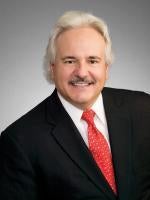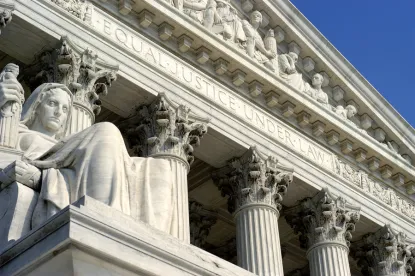This week, in Impression Products, Inc. v. Lexmark International, Inc., 15-1189, the Supreme Court reversed the Federal Circuit and strengthened the Doctrine of Patent Exhaustion. Under the bright-line rule set forth by the Court, the sale of an item by a patentee automatically exhausts all U.S. patent rights in the item, precluding downstream purchasers from being sued for patent infringement. Importantly, this is true regardless of where the sale occurred—in the United States or abroad—or whether express contractual restrictions were placed on the sale by the patentee, even if the downstream purchasers knew of the restrictions and willfully ignored them. The Court noted that contractual restrictions could give rise, however, to relief under contract law.
Impression Products involved the resale of printer cartridges. Lexmark designed and sold printer cartridges in two manners: purchasers could pay a lower price, subject to a restriction against recharging toner and a requirement that the purchaser return spent cartridges to Lexmark; or purchasers could pay a higher price with no restrictions. It also included technological protections in the cartridges that were not to be recharged in an attempt to enforce the restrictions by technical means. Impression Products was in the business of obtaining used cartridges, refilling them with toner, and then selling them in competition with Lexmark. It conceded that it knew of the restrictions and that it circumvented the technological protections in order to resell the cartridges. Lexmark sued Impression Products for patent infringement with respect to cartridges that it obtained in the United States in violation of the restrictions, and also with respect to cartridges that it purchased abroad and imported into the United States without Lexmark’s permission. The Federal Circuit, in an en banc decision, held that patent exhaustion did not preclude either allegation of infringement.
On appeal to the Supreme Court, the Court was thus called upon to address two questions: (1) whether a “conditional sale”—where title passes to a patented item subject to post-sale restrictions on use or resale—overcomes the patent-exhaustion doctrine and allows infringement actions to be maintained for use or resale outside the scope of the restrictions; and (2) whether a sale of a patented article authorized by the patentee outside the United States exhausts the U.S. patent rights in that article, so as to allow the import of that patented article into the United States.
The Supreme Court reversed the Federal Circuit on both questions, clearly holding:
[P]atent exhaustion is uniform and automatic. Once a patentee decides to sell—whether on its own or through a licensee—that sale exhausts its patent rights, regardless of any post-sale restrictions the patentee purports to impose, either directly or through a license.
Slip op. at 13. With respect to sales abroad, the Court was equally clear: “An authorized sale outside the United States, just as one within the United States, exhausts all rights under the Patent Act.” Id. The Court’s decision was 8-0 on the first question, and 7-1 on the second, with only Justice Ginsberg dissenting in part.
The Court based its conclusions on the long-standing common-law principle disfavoring restraints on alienation, which it held directly curtailed patent rights. The Federal Circuit, in contrast, had viewed patent exhaustion as being derived from Section 271(a) of the Patent Act, which defines patent infringement as various acts (use, sale, etc.) undertaken “without authority.” Thus, in determining whether patent exhaustion applied, the Federal Circuit considered whether the patent owner had authorized the accused activity. It viewed a restriction on use known to the purchaser as clearly withholding authority. The Supreme Court fundamentally disagreed with this approach, ruling that the centuries-old rule against restraints on alienation provided an inherent limit to the patent right itself, such that an authorized sale by the patentee—albeit one burdened by restrictions—automatically extinguishes that right. In short, after an authorized sale “there is no exclusionary right left to enforce.” Slip op. at 10. This is true regardless of whether the sale was made directly by the patentee, or instead by a patent licensee, or was made in the United States or abroad.
The Court did note that resellers or users who have violated post-sale restrictions to which they had agreed could still possibly be sued for breach of contract. Further, the Court noted that its ruling applied only to authorized sales. Thus, for instance, were a patent licensee to make a sale that was not authorized by the license, there would be no patent exhaustion for the simple reason that the patentee had never authorized the sale in the first instance.
This ruling will have an immediate impact. Patentees can no longer rely on U.S. patent laws to enforce post-sale restrictions on patented goods. Although patentees may be able to bring breach of contract or tort actions in certain instances to enforce those restrictions, these actions may be more limited than a patent infringement action with respect to who may be sued or with respect to the remedies that may be obtained. It is difficult to bring a breach of contract action against parties with whom one has never contracted. So, for instance, following Impression Products, Lexmark may have straightforward breach of contract claims against the individual purchasers who failed to return cartridges to Lexmark, but not against Impression Products, who never entered into any agreements with Lexmark. Lexmark might have tort causes of action for interference and the like, but these may be less satisfactory than a patent action and interference claims can be difficult to maintain, especially as to downstream purchasers.
Another important effect of this ruling is with respect to international sales. The Federal Circuit had held that sales abroad did not implicate patent exhaustion, and patentees thus have had an expectation that unauthorized importation could be stopped with a patent infringement action, either at the District Court or the International Trade Commission. Now, the ability to restrict unauthorized importation following an authorized sale abroad could be greatly limited. This may require patentees to rethink fundamentally their pricing strategies for products sold abroad that are susceptible to importation following resale. It also could lead to greater efforts on the part of manufacturers to arrive at more advanced technical solutions that would prevent goods sold abroad from working in the United States following an unauthorized importation, for example.
The Supreme Court’s ruling in Impression Products has definitely changed the playing field for patentees relying on distribution chains, especially extended ones and relying on market segmentation strategies. It will be interesting to see how quickly they can adapt.





 />i
/>i

